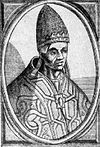672
Appearance
| Millennium: | 1st millennium |
|---|---|
| Centuries: | |
| Decades: | |
| Years: |
| 672 by topic |
|---|
| Leaders |
| Categories |
| Gregorian calendar | 672 DCLXXII |
| Ab urbe condita | 1425 |
| Armenian calendar | 121 ԹՎ ՃԻԱ |
| Assyrian calendar | 5422 |
| Balinese saka calendar | 593–594 |
| Bengali calendar | 79 |
| Berber calendar | 1622 |
| Buddhist calendar | 1216 |
| Burmese calendar | 34 |
| Byzantine calendar | 6180–6181 |
| Chinese calendar | 辛未年 (Metal Goat) 3369 or 3162 — to — 壬申年 (Water Monkey) 3370 or 3163 |
| Coptic calendar | 388–389 |
| Discordian calendar | 1838 |
| Ethiopian calendar | 664–665 |
| Hebrew calendar | 4432–4433 |
| Hindu calendars | |
| - Vikram Samvat | 728–729 |
| - Shaka Samvat | 593–594 |
| - Kali Yuga | 3772–3773 |
| Holocene calendar | 10672 |
| Iranian calendar | 50–51 |
| Islamic calendar | 51–53 |
| Japanese calendar | Hakuchi 23 (白雉23年) |
| Javanese calendar | 563–564 |
| Julian calendar | 672 DCLXXII |
| Korean calendar | 3005 |
| Minguo calendar | 1240 before ROC 民前1240年 |
| Nanakshahi calendar | −796 |
| Seleucid era | 983/984 AG |
| Thai solar calendar | 1214–1215 |
| Tibetan calendar | 阴金羊年 (female Iron-Goat) 798 or 417 or −355 — to — 阳水猴年 (male Water-Monkey) 799 or 418 or −354 |

Year 672 (DCLXXII) was a leap year starting on Thursday of the Julian calendar. The denomination 672 for this year has been used since the early medieval period, when the Anno Domini calendar era became the prevalent method in Europe for naming years.
Events
[edit]By place
[edit]Europe
[edit]- Wamba succeeds Recceswinth as king of the Visigoths. After ascending to the throne he faces a revolt from Hilderic, governor of Nîmes, who has himself aspired to the kingship. He is supported by Gumild, bishop of Maguelone. Wamba sends dux Paulus to Septimania (Southern France) to end the hostilities, but on his arrival at Narbonne, Paulus proclaims himself king.[1]
Britain
[edit]- King Cenwalh of Wessex dies after a 31-year reign, in which he has lost much of his territory to Welsh and Mercian forces. He is succeeded by his widow Seaxburh. His sub-kings divide Wessex amongst themselves (approximate date).
Asia
[edit]- January 7 – Emperor Tenji dies after a 10-year reign, in which he has given the Fujiwara clan its name. Following his death, there ensues a succession dispute between Tenji's 14 children (many by different mothers). He is succeeded by his favorite son Kōbun, age 23, who was the first accorded with the title Daijō-daijin.[2]
- August 21 – Kōbun is deposed after 8 months, during a brief but violent battle called the Jinshin War. He is succeeded by his uncle Ōama, who becomes the 40th emperor of Japan with support from the Fujiwara family. He takes the name Tenmu, and begins a reign that will continue until 686.
Americas
[edit]- As part of the Second Tikal–Calakmul War, Bʼalaj Chan Kʼawiil is again forced to abandon Dos Pilas, after it is attacked by an insurgency led by Nuun Ujol Chaak against Calakmul.
By topic
[edit]Literature
[edit]- Cædmon, Anglo-Saxon poet, writes a nine-line hymn on the Creation. A onetime illiterate herdsman, he becomes a monk under the rule of Hilda of Whitby, where he will turn various biblical themes into vernacular poetry (approximate date).
Religion
[edit]- January 27 – Pope Vitalian dies at Rome after a reign of more than 14 years. He is succeeded by Adeodatus II as the 77th pope.
- Máel Ruba, Irish abbot, founds one of the first Christian monasteries in Applecross (Scotland) located in hostile Pictish territory.
- Wilfrid, bishop of York, brings stonemasons, plasterers and glaziers from France and Italy to build Ripon Cathedral (England).
Births
[edit]- Bede, Anglo-Saxon theologian and historian (approximate date)
- Chilperic II, king of the Franks (approximate date)
- Yazid ibn al-Muhallab, Muslim governor (d. 720)
Deaths
[edit]


- January 7 – Tenji, emperor of Japan (b. 626)
- January 27 – Pope Vitalian
- March 2 – Chad of Mercia, Anglo-Saxon abbot
- August 21 – Kōbun, emperor of Japan (b. 648)
Date unknown
[edit]- Cenwalh, king of Wessex (approximate date)
- Jiang Ke, general of the Tang dynasty
- Recceswinth, king of the Visigoths
- Xu Jingzong, chancellor of the Tang dynasty (b. 592)
